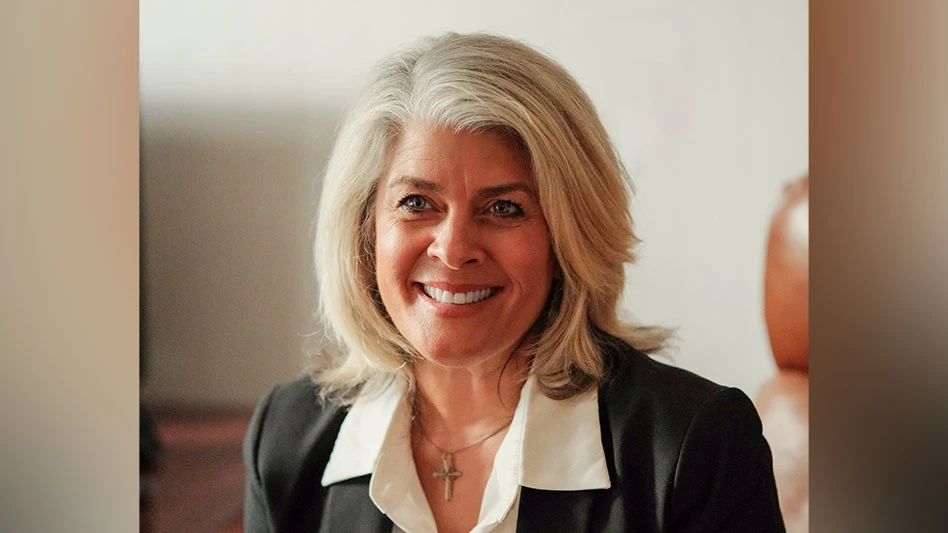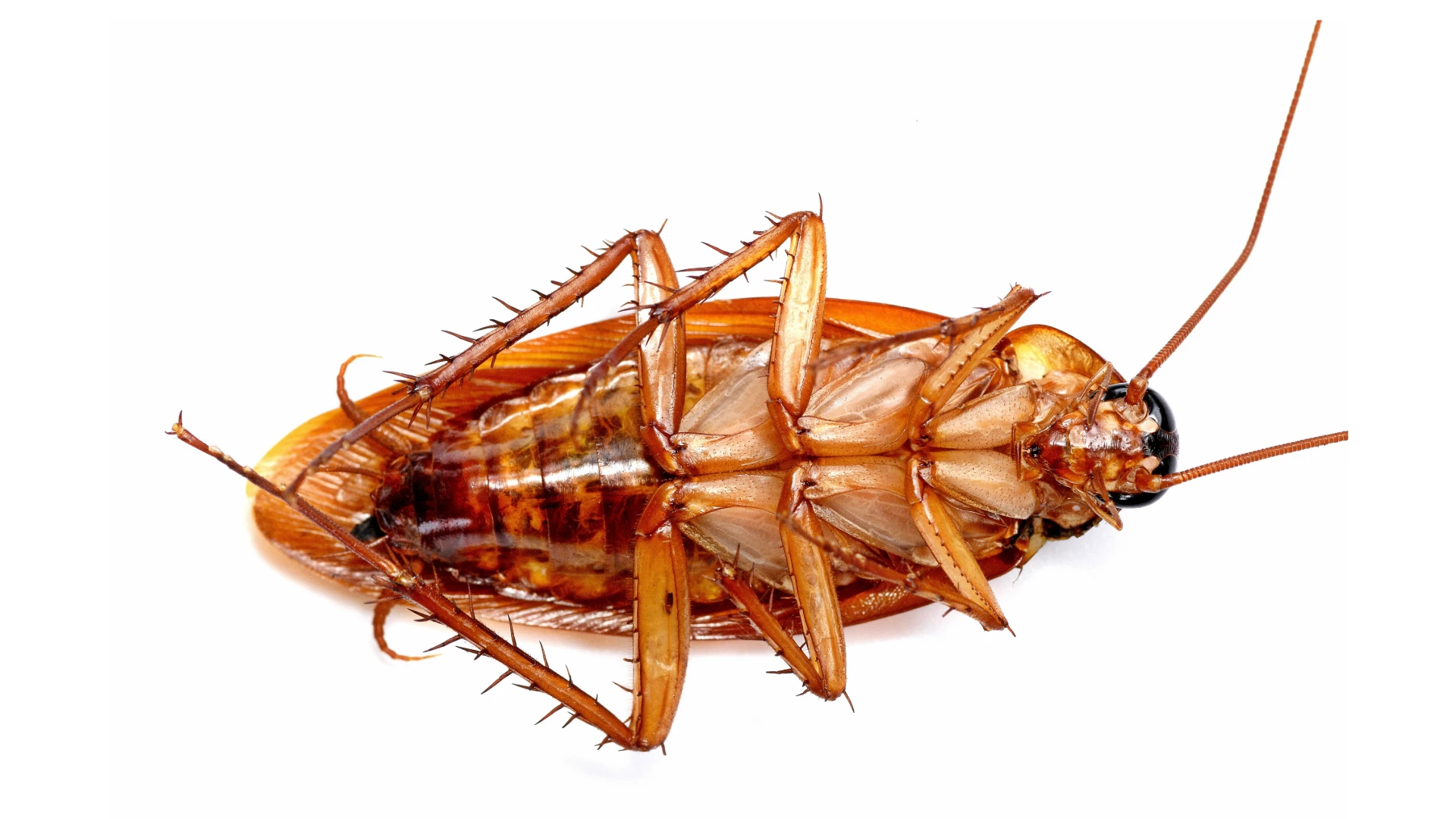Spectrum, a division of United Industries – best known in the pest control industry for its controversial termite bait Terminate – has developed a new line of professional pesticides for PCOs and lawn care professionals. The product line, sold and distributed under the brand name SpectracidePRO,TM was developed in conjunction with Home Depot and was launched in March with initial distribution in approximately 450 of Home Depot’s 736 locations throughout the United States.
The SpectracidePRO product line features a full range of pesticides including aerosols, insect baits, foggers, dusts, insecticide concentrates, rodenticides, fungicides and herbicides. The pesticides, none of which are "restricted use" products, contain commonly used active ingredients familiar to most PCOs (i.e., chlorpyrifos, diazinon, boric acid, etc.). Ads promoting the new product line began appearing in industry trade journals in April (right), prompting heated discussions among PCOs and distributors alike about the pros and cons of placing "professional" pesticides in an over-the-counter setting.
WHY NOW? SpectracidePRO Group Manager Mark Gershenson said Spectrum decided to enter the professional pesticide market after observing more and more service professionals purchasing products at home center stores. This trend, driven by the rapid expansion of such well-known "super stores" as Lowe’s and Home Depot, is most prevalent in the plumbing, electrical and remodeling trades. However, after conducting research that indicated 76% of all pest control operators employ only one to four people, Spectrum decided similar potential exists in the pest control market. "That’s our target audience," Gershenson said.
"The cost savings, convenience of multiple distribution locations and longer operating hours make this attractive to small, independent PCOs," he added. "Those same benefits also make this a good option for larger operators to use as a convenient fill-in source for pesticides."
Spectrum is providing Material Safety Data Sheets (MSDS) in-store, alongside the products, which will be merchandised near the lawn and garden chemical section of Home Depot stores. The company will also offer toll-free technical support to answer product application questions. PCOs can speak with a support specialist by dialing 877/SPECPRO (877/773-2776) from 8 a.m. to 5 p.m. Monday through Friday.
WHO ARE THESE GUYS? Most PCOs know very little about United Industries other than the fact the company has been involved in a messy confrontation with the Federal Trade Commission over Terminate, its controversial over-the-counter termite bait system. In mid-March, the company agreed to make refunds to consumers and to modify its advertising claims for Terminate following protracted settlement talks with the Federal Trade Commission, the District of Columbia and nine state attorneys general.
While Terminate has grabbed most of the headlines in the pest control industry, United Industries is much more than simply the latest product supplier entering the lucrative termite market. The company was founded in 1969 by David Pratt, a minority owner of the St. Louis Cardinals, who has managed the company for nearly three decades.
United Industries was initially involved in anchor and bolt production, but following the acquisition of the chemical manufacturer Spray Chem in 1973 – as well as numerous brand acquisitions and new product introductions – the company has grown into a nationwide manufacturer and marketer of lawn and garden and insect control products. The firm currently employs approximately 1,000 people and generates more than $300 million in annual revenues.
Among the company’s most recognizable brands are Hot Shot,® Spectracide,® Bag-a-Bug,® Real-Kill,® Peters® and Cutter.® United Industries sup-plies products to customers representing more than 70,000 retail stores across the United States and in select locations in Canada, Puerto Rico and the Caribbean.
Stephen Brian, the company’s new chief executive, has been given a mandate to grow the company, perhaps through an initial public stock offering. Brian joined the company in mid-March after Thomas H. Lee Co., a Boston-based leveraged buyout firm, invested $620 million in United Industries, securing a 90% share of the business. Lee, which reportedly financed the United Industries purchase with a $3.5 billion buyout fund, is a well-known player in the financial world, having invested in such consumer products companies as Snapple, General Nutrition and First Alert, according to a recent report in the St. Louis Business Journal.
Brian comes to United Industries from Home Products International, a publicly held consumer products company based in Chicago. "The company had a good record under him," according to Cynthia Vespereny, a reporter for the St. Louis Business Journal, growing the company’s revenues from $38.2 million to $252.4 million. In his new position, he will also serve as president of United Industries.
MARKET IMPACT. Obviously, the distributor community is a bit skittish about the entry of a new player into the professional pesticide market. "All these things have an impact on a distributor’s bottom line," says Tom Evans, president of Southern Mill Creek Products, a well-known distributor based in Cleveland, Ohio. "It’s a question to what degree. I think it will attract the medium to small buyer and those people who can’t plan well or who don’t have much credit, but I don’t think they will represent a significant threat to standard distribution."
"I can’t see a professional PCO walking into a Home Depot and purchasing a professional product," adds Tommy Reeves, vice president of Oldham Chemicals Co., Memphis, Tenn. "I think it would be an image problem for PCOs to go into a retail store (and purchase products)."
Roland Rhodes, president of Rhodes Chemical Co., a distributor based in Kansas City, Kan., agrees. "I don’t see the full-time pest control professional procuring his products from Home Depot," he says. "The full-time professional recognizes the value-added services offered by industry product suppliers," including training, technical support and marketing input.
"I think PCOs are asking the manufacturers for more and more technical support through distributors and I don’t see how Spectrum can offer that tech support through Home Depot," says Tom Forshaw, president of Forshaw Distribution, Charlotte, N.C.
Mark Sargent, director of sales and technical services for Spectrum, disagrees. "In addition to our toll-free technical support hotline and the MSDS sheets we are providing at the point of purchase, our regional sales force is busy meeting with professionals to answer any questions and conducting product knowledge sessions with Home Depot management and staff," he said.
Gershenson said Spectrum cur-rently has an eight-person field sales staff calling on PCOs and lawn care professionals, but he expects that to grow to "one in every major market that we compete in (20-30)."
"Some distributors will lose customers, but it’s my belief that the value-added parts of distribution are well worth the few pennies of savings a PCO could receive at Home Depot," adds Dick Judy, product manager, structural pest control, for LESCO, a major product supplier in both the turf and pest control markets, based in Rocky River, Ohio. Nonetheless, the introduction of a SpectracidePRO product line could be a wake-up call for some distributors, according to Judy. "It clearly challenges traditional distribution to reinforce the value-added services they bring to the business."
Despite the air of confidence exhibited by most distributors, several expressed concern about over-the-counter products "devaluing" the entire market for professional insecticides, thereby further eroding their already tight profit margins.
Forshaw is also skeptical about the ability of Spectrum to make a go of a "proprietary" product line for the pest control industry given the high cost of registering products and the accompanying paperwork requirements. "I think the PCO has moved away from (purchasing) proprietary product lines," he said. "At Forshaw, we quit it for a reason."
What Forshaw calls a "house brand," however, Spectrum considers a "national" brand. "That’s a business we’re already in ... developing labels and getting the registrations," Gershenson said, so he doesn’t consider it a particularly difficult challenge for the company.
WHAT’S AHEAD? The long-term impact of a potential change in traditional distribution channels will depend on factors we can’t measure yet, according to Dr. George Rotramel, a longtime industry observer and president of Rotramel Technical Services, Chicago, Ill. "A lot will depend on how the distributors and basic manufacturers react," he said. "In the short term, Spectrum has a cost advantage over the established distributors." Not only can Spectrum sell its products through Home Depot and other retail outlets at a low price because of the sheer size of the market, but Rotramel and others openly question whether a company specializing in consumer products will support the NPCA’s fledgling Industry Awareness Council (IAC) fund-raising effort, whereby participating distributors process a 2.5% voluntary surcharge on product sales to support a pro-industry advertising campaign and PR initiative designed to grow the market for professional pest control services (see related story on page 101). Others are concerned that Spectrum’s move into the professional market will cause those distributors "sitting on the fence" to balk at participating in the IAC program.
At this point, Spectrum is non-committal about its support of the NPCA’s Industry Awareness Council campaign. "We are currently investigating every op-portunity — Industry Awareness Council, NPCA, state and local associations — to support the industry at the user level," Sargent said. "We are also looking at other avenues to build industry awareness."
What do PCOs think about the agreement between Spectrum Industries and Home Depot? Valera Jessee, executive director of the Georgia Pest Control Association, says PCOs surveyed at a recent GPCA Board meeting weren’t particularly impressed one way or the other. "The feeling was that pest control operators have a ‘bond’ with their distributor as a partner in their business," she said. "Buying off-the-shelf (products) threatens part of their team and most feel their success is dependent on keeping the ‘team’ together."
Perhaps even more important than how pest control operators react to the new SpectracidePRO product line, however, is how the consumer responds to this new addition to the lawn and garden section of their local Home Depot store. "The Spectrum professional line is just one more market influence that tends to blur the distinction between professional pest control service and do-it-yourself treatments," warns Rotramel. "Every time a line of ‘professional’ or ‘professional strength’ products is made available to consumers, it reinforces the public’s mistaken idea that the product does the job and not the applicator. This is the problem that PCOs really need to address. That’s why the industry’s (Industry Awareness Council) ad campaign needs to stay focused on the concept of ‘The Pros Who Know.’"
The author is editor/publisher of PCT magazine.

Explore the May 1999 Issue
Check out more from this issue and find your next story to read.
Latest from Pest Control Technology
- NYC PCO Growing Business with Focus on Corporate Clients
- Massey Services Promotes Silver, Crespo to Director Roles
- Recurring Services Model, Wildlife Offerings Lead to Impressive Growth for Tailor Made
- Shelters: Difficult to Manage
- NPMA Announces Recipients of 2025 Impact Awards
- Fleetio Expands Geotab Integration with Shop Network Add-In
- RISE Hosts Breakfast at AMCA for Pesticide Advocacy
- WPCA Hosts Annual Midwest Pest Con





